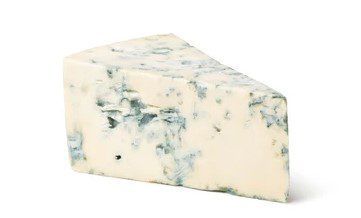

Blue cheese is not suitable for dogs to consume. The strong flavor and mold that give blue cheese its distinct properties could be difficult for a dog to digest, and could potentially cause an upset stomach or other digestive issues. Some blue cheeses also contain high levels of salt, which could be harmful to a dog’s health if consumed in large amounts. Furthermore, while blue cheese may be tempting to share with your dog due to its distinctive flavor and aroma, it should be avoided as the potential risks outweigh the rewards.
Blue cheese is a type of cheese which is known for its strong aroma, sharp flavor and blue/gray veining. Some of the most popular types are Gorgonzola, Roquefort, Stilton and Cambozola. They all belong to the family of Cow’s Milk cheese that are inoculated with Penicillium molds to give them their blue veining and intense flavor. Blue cheese is predominantly used in salads, dressings, sauces, casseroles and burgers. Today, most commercial blue cheese are manufactured from cow’s milk, but historically it was made from ewe’s and goat’s milk as well. The origin of blue cheese can be traced to the caves of Roquefort in France where the first batch of this cheese was discovered.
While blue cheese has a distinct flavor and aroma that can be tempting to share with your dog, it is important to remember that dogs have different digestive systems than humans. As such, blue cheese can be difficult for a dog to digest due to its strong flavor and mold content, and can cause digestive issues and an upset stomach. Additionally, some blue cheeses contain high levels of salt which, if consumed in large amounts, can be very harmful to a dog’s health. Furthermore, blue cheese is high in fat, cholesterol, and sodium which can contribute to weight gain and increase the risk of developing health issues such as obesity, diabetes, and heart disease. In conclusion, it is advised to avoid giving your dog blue cheese due to the potential risks that far outweigh the rewards.
It is much better to choose healthier alternatives to feed your dog and keep their diet balanced. Two great alternatives edible by dogs are fresh fruits and vegetables, such as carrots and apples. Fruits and vegetables are natural sources of antioxidants, vitamins, and minerals and are digested easily by dogs. Additionally, they provide your dog with important dietary benefits without the risk of excessive salt, fat, or cholesterol.
Blue cheese is a type of Cow's Milk cheese which is known for its strong flavors and blue/gray veining. Dogs have different digestive systems than humans so blue cheese should be avoided as its strong flavors and mold content can cause digestive issues and an upset stomach. Alternatives such as fresh fruits and vegetables are much better as they provide important dietary benefits without the risk of excessive salt, fat, or cholesterol.
Have you ever tried giving your dog blue cheese before, and if so, how did they respond?
We'd love to hear your experiences with blue cheese for your pup! If you're looking for other healthy snacks for your pup, be sure to check out Way Canina to discover some options. Thank you for dropping by, and take care!